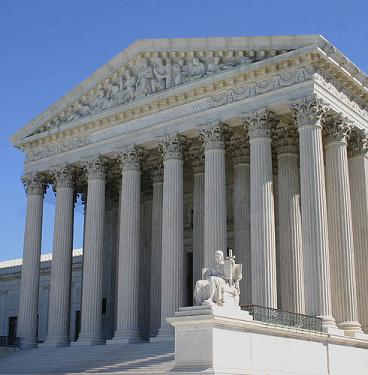 NATION-The US Supreme Court’s conservative majority continued its project of bartering off American democracy to the highest bidder with a decision Monday that will make it dramatically harder to counter free-spending attack campaigns funded by billionaire donors and corporate spin machines.
NATION-The US Supreme Court’s conservative majority continued its project of bartering off American democracy to the highest bidder with a decision Monday that will make it dramatically harder to counter free-spending attack campaigns funded by billionaire donors and corporate spin machines.
With a 5-4 vote, the Court has struck down a matching-funds mechanism in Arizona’s Clean Elections Law that allowed candidates who accepted public funding to match the spending of privately funded candidates and independent groups that might attack them. Under the Arizona law—which has long been considered a national model for using public funds to pay for campaigns—candidates who accept public funding are limited in what they can spend.
Candidates who refuse public funding are not so constrained; and nor are independent groups that support privately funded candidates; indeed, in the aftermath of the Supreme Court’s sweeping Citizens United v. FEC ruling of 2010, which cleared the way for corporations to spend as much as they like to influence election, restrictions to the flow of private money into politics have been all but eliminated.
Read full article about Supreme Court Removes Another Barrier To Corporate Ownership Of Elections.
© 2011 The Nation
Photo by Flickr user dbking











a provincial Supreme Court judge to me, my cinlet, back in the early 80s, something like:- Of course the law is fair and equitable. Of course the division of assets is based on 50/50. But it depends on the meaning of 50/50. -Like “it depends on the meaning of ‘is'”, if you can catch the meaning of that meaning as your jaw drops. Not in expectation.We’re in an age where not only our words are being redefined. Our phrases, our idioms, our sentences, our stories, our traditions are under attack.Not Me9tis enough, not multicultural enough. We’re never “enough”. Because judges, and the rest, are not man enough.No balls left means the game is over…
Corporate Personhood is has been twisted into a Machiavellian plutocracy. Our Founding Father Thomas Jefferson wanted to prevent “monopolies in commerce.”